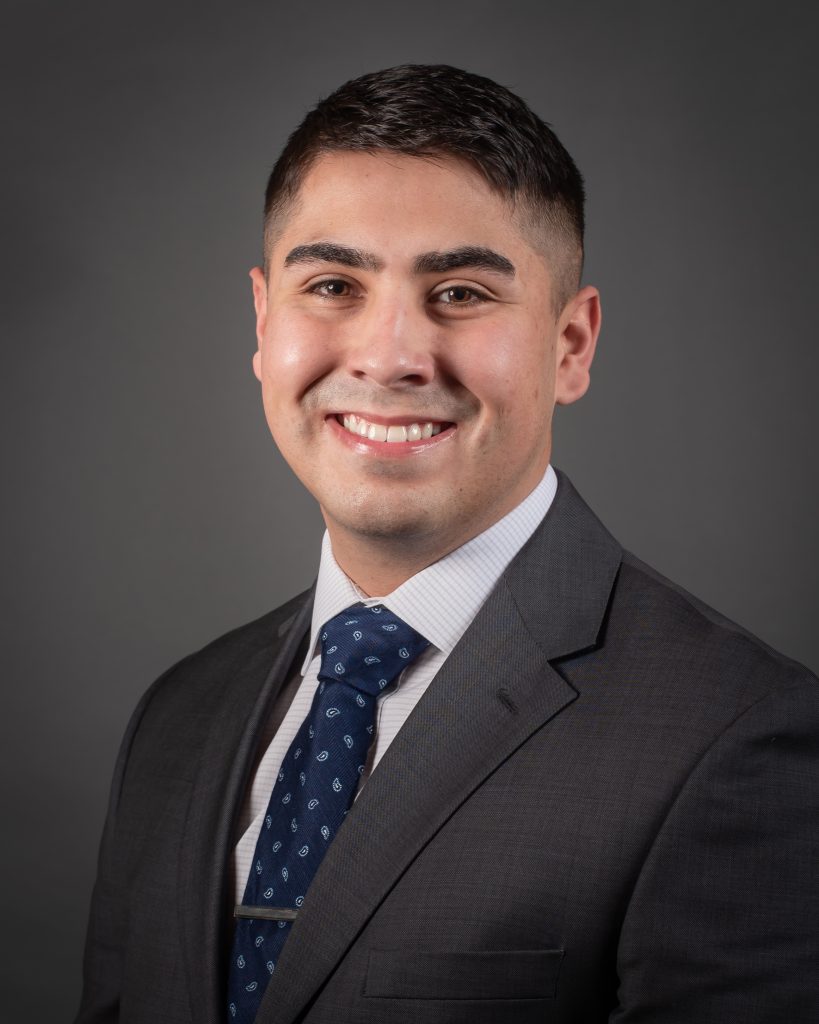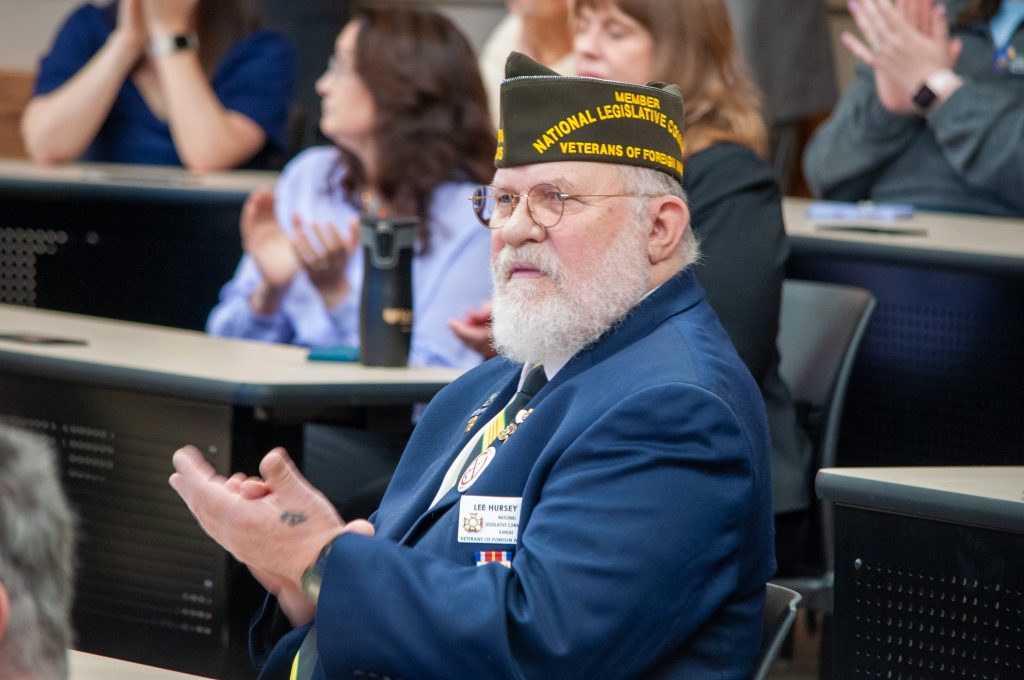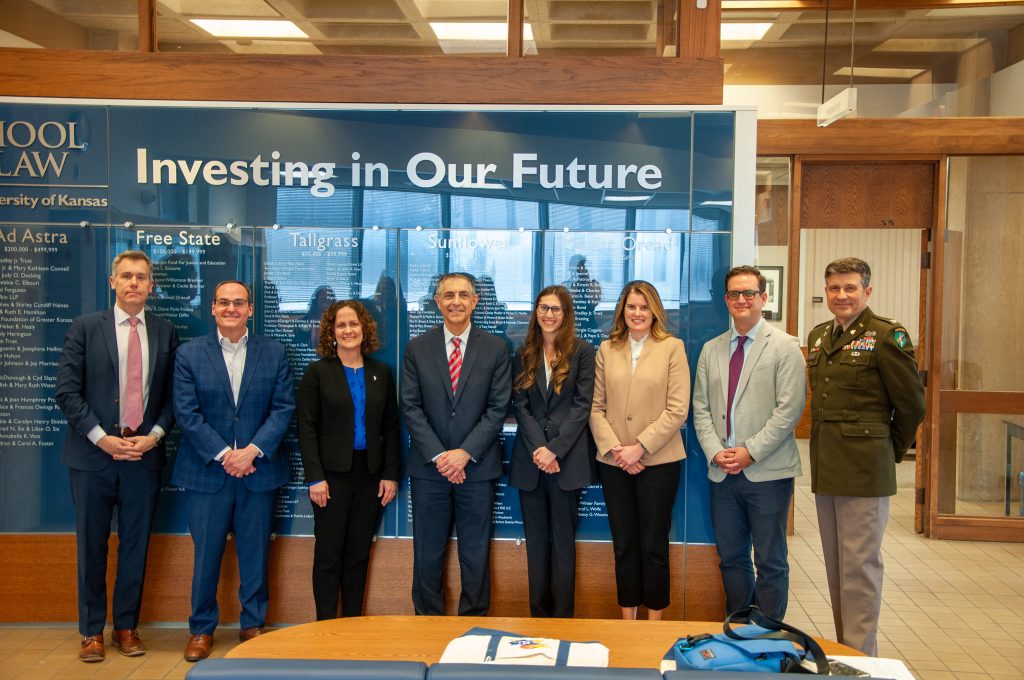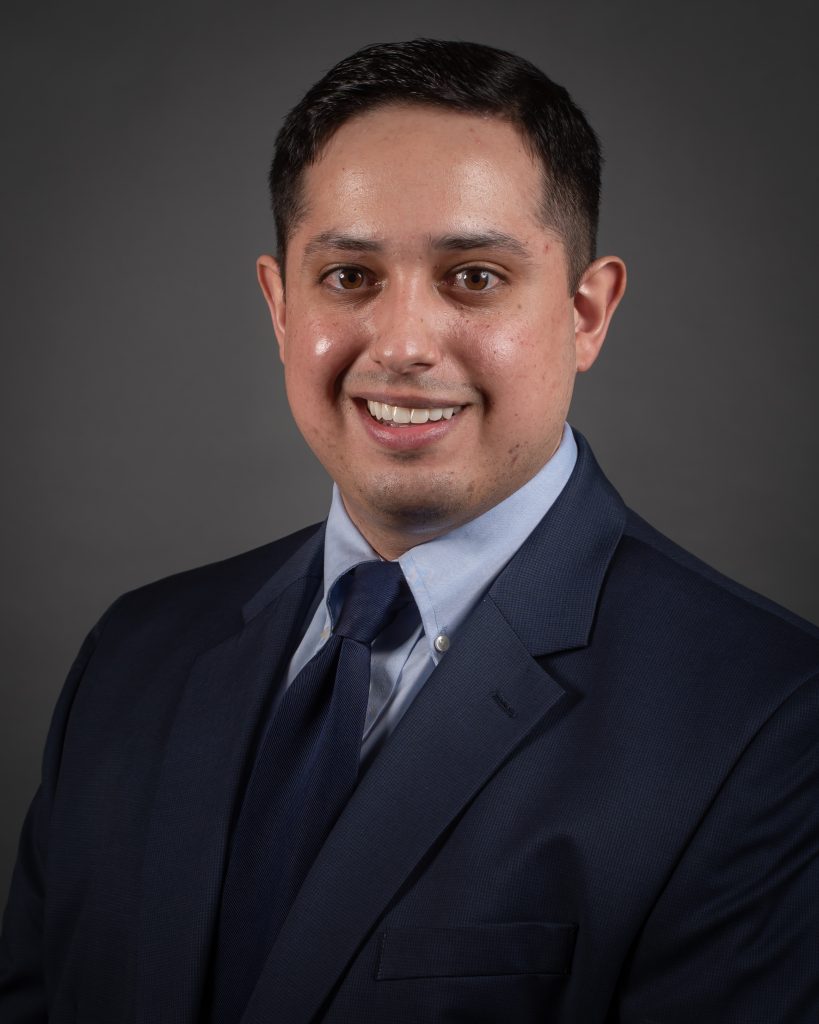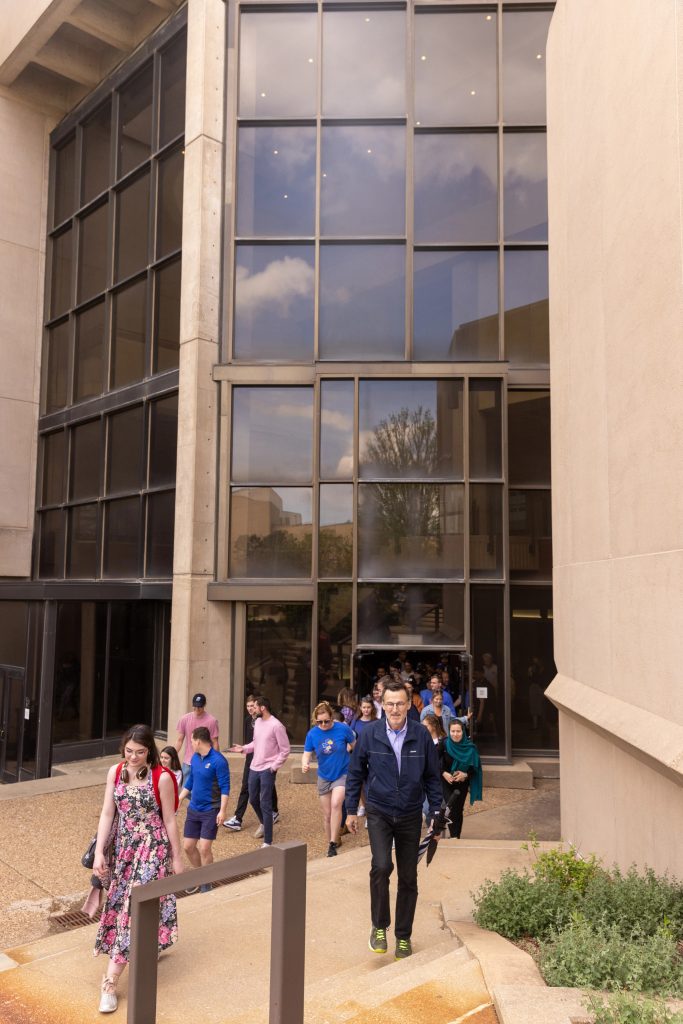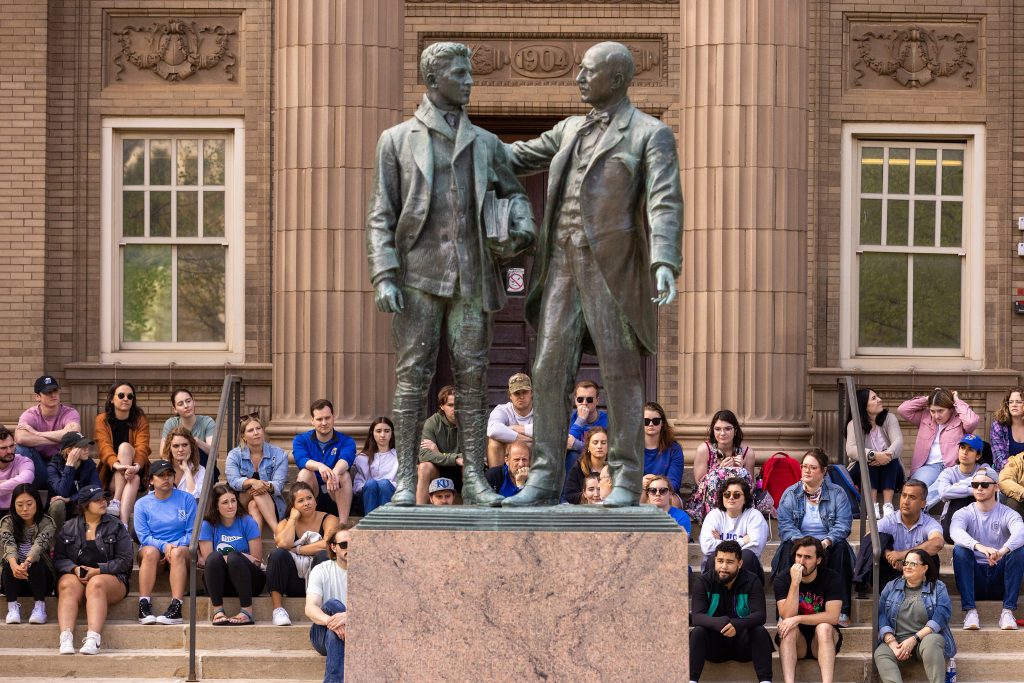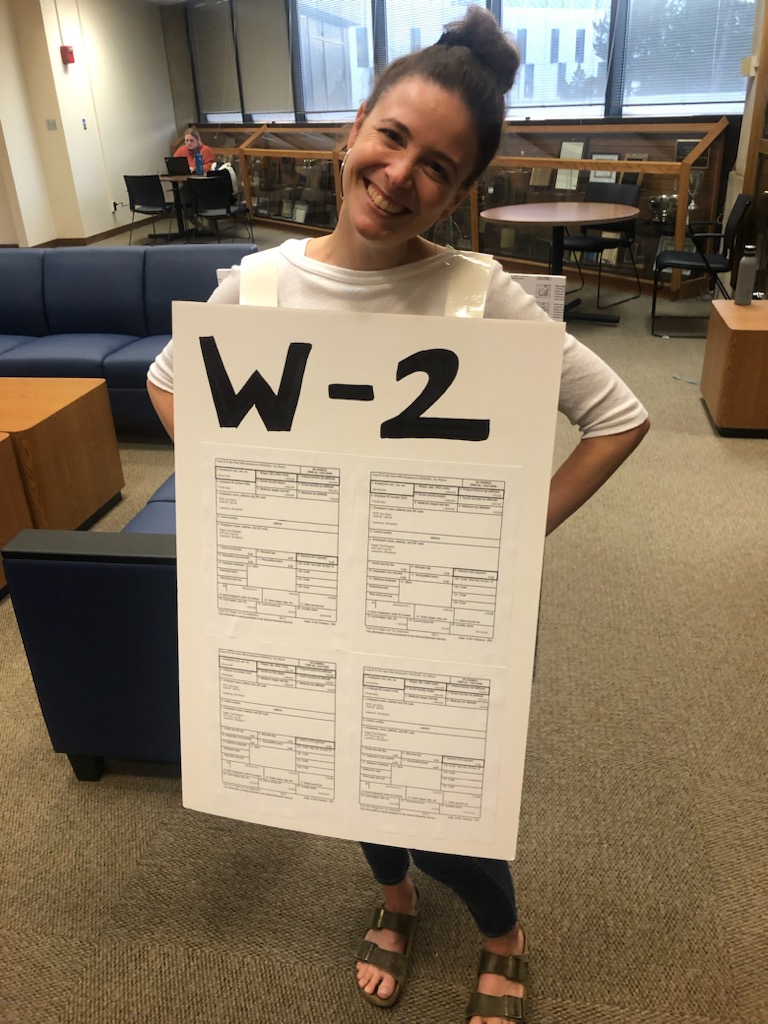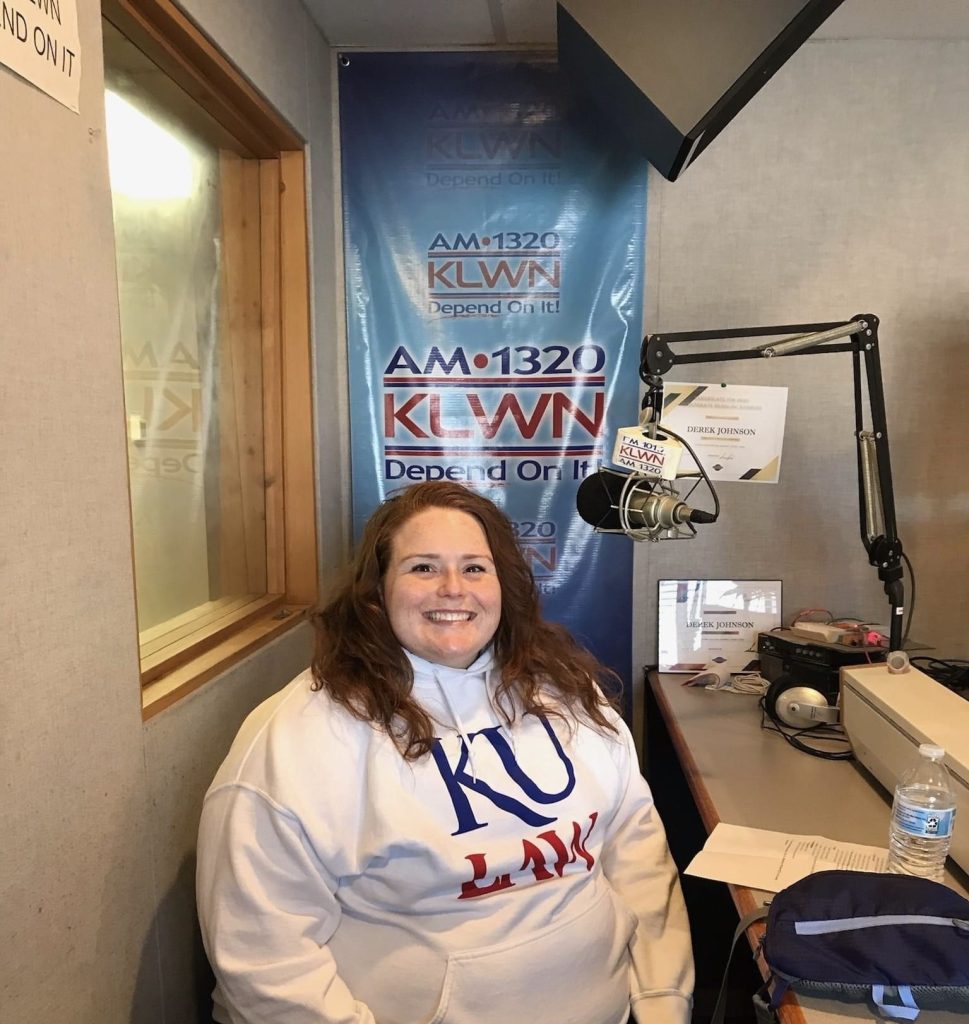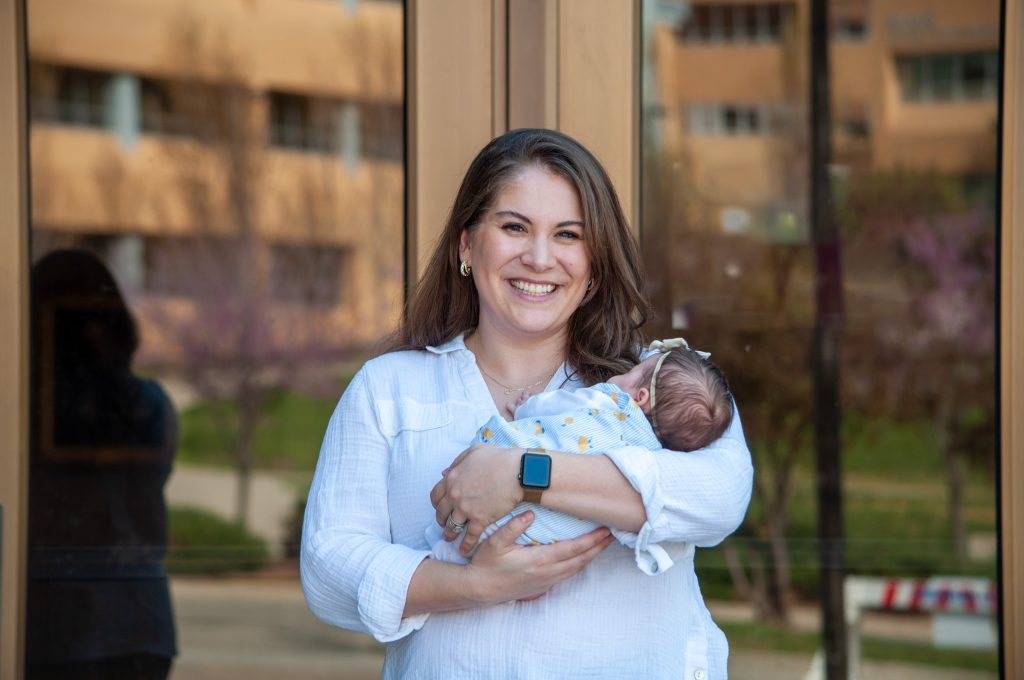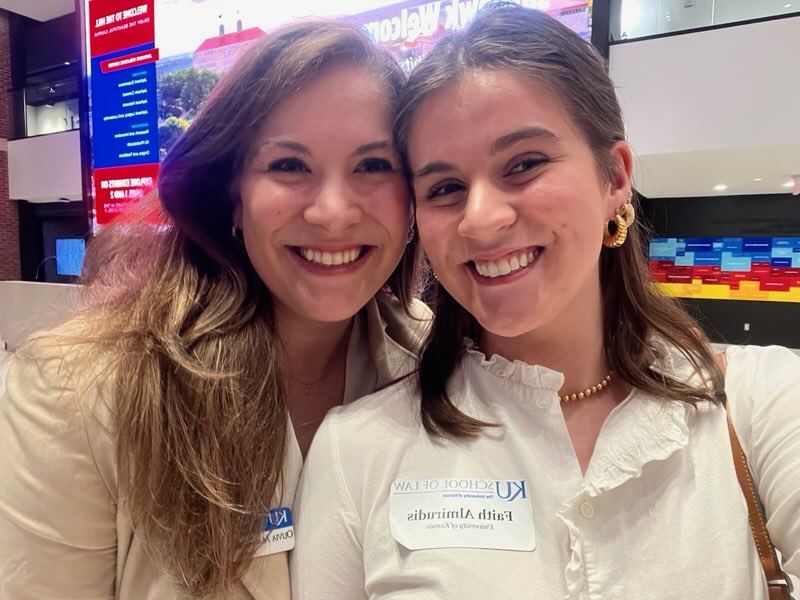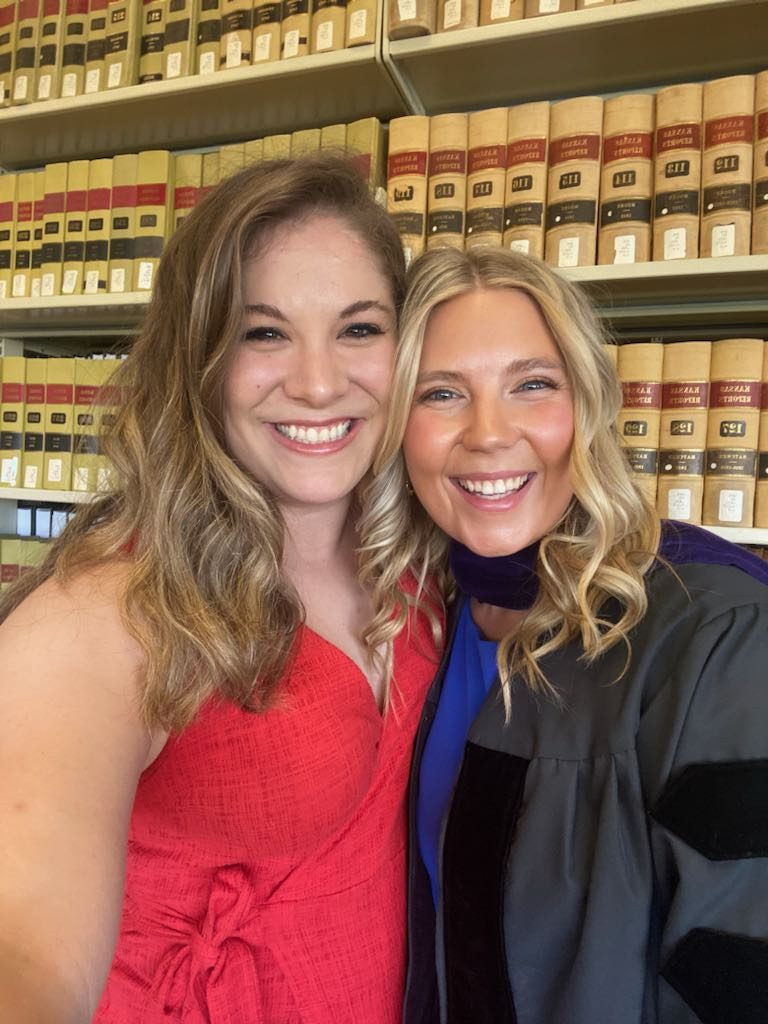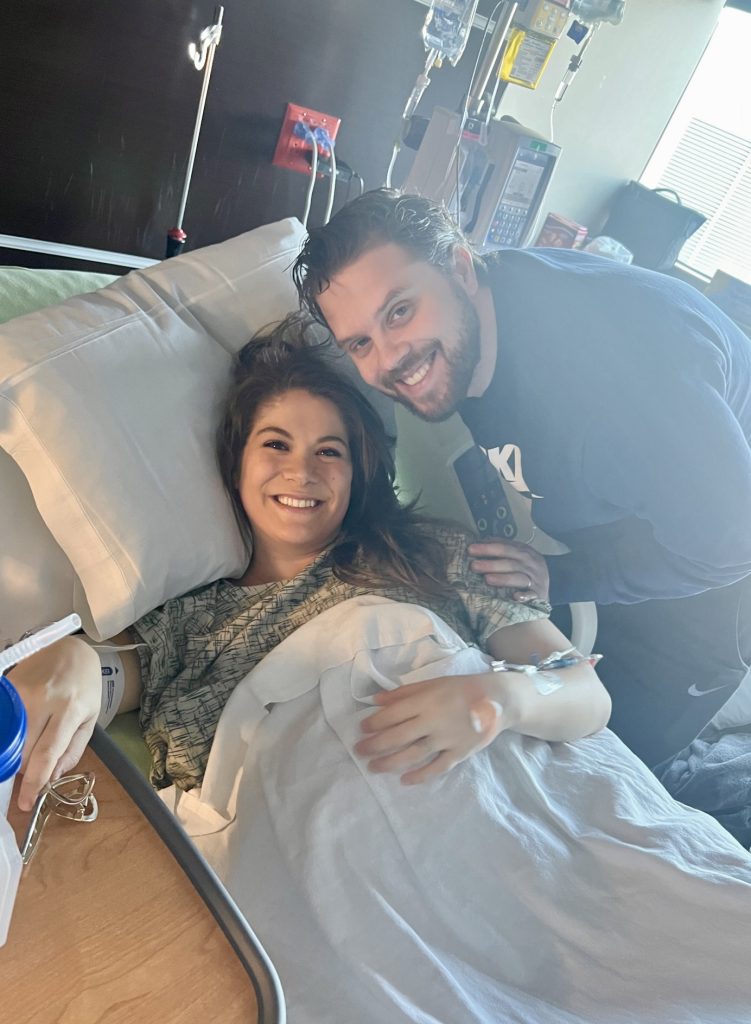Student finds right place in transactional law
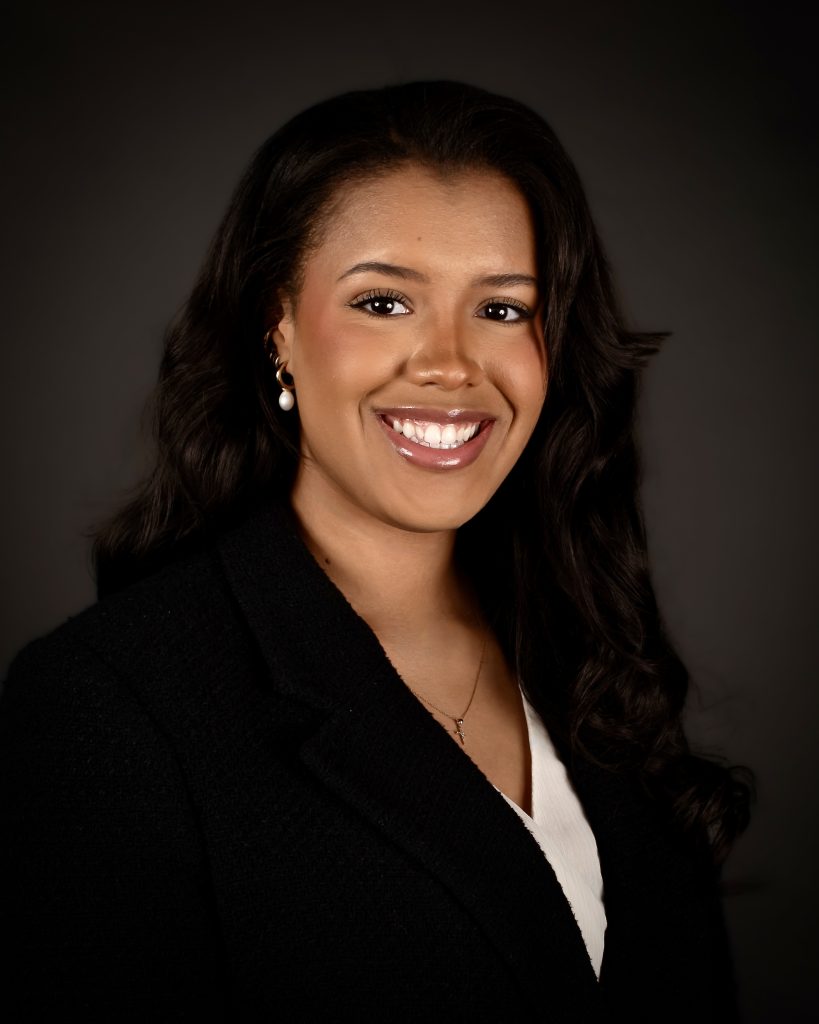
“You never really understand a person until you consider things from his point of view.”
– Atticus Finch, “To Kill a Mockingbird”
Jade Kearney knew from a young age that she wanted to be a lawyer and it was thanks in part to the literary classic by Harper Lee.
“I was in the third or fourth grade telling people I wanted to be an attorney,” Kearney said with a laugh. “I read ‘To Kill a Mockingbird’ around that time frame, and I knew that’s what I wanted to do. I wanted to be able to advocate and inform society however I could. Going to law school and becoming an attorney seemed like the right way to go about it.”
Thanks to her early passion for the law, Kearney knew exactly what she was looking for when she started researching potential law schools. As a participant in the LEAD program, Kearney attended KU for three years of her undergraduate program and then continued to KU Law to finish her undergraduate and graduate degrees in six years instead of seven.
“I wanted to do an accelerated program,” said Kearney. “I wanted a law school that would let me continue to do debate and mock trial experiences and continue that sort of advocacy.”
Kearney was an active member in moot court and mock trial competitions throughout her law school career. This past academic year, Kearney participated as part of the mock trial team in the National Trial Advocacy Competition in Detroit where she won an Outstanding Witness award, and later went on to compete in the Thurgood Marshall Moot Court Competition where her team advanced to the sweet 16 round in Washington D.C. She was also part of the fourth consecutive winning team at this year’s National Native American Law Student Association (NNALSA) Moot Court Competition in Montana. In addition to the team trophy, Kearney took home the best speaker award.
Despite her achievements in moot court and mock trial, Kearney is looking toward a future that focuses more on transactional law. After her 1L summer interning at the Kansas City architecture firm, Populous, Kearney knew where she needed to be.
“The Populous team really helped me get a feel for what in-house work could look like,” said Kearney. “I learned that it’s just as interesting and interactive as some of the courthouse procedure I’d been doing in my competitions.”
After graduation, Kearney plans to move to New York City to join the design-engineering firm, Arup, and continue her career in-house.
“Arup is an amazing firm,” she said. “They not only prioritize doing great work but have a primary interest in sustainability and building sustainably. Working at a company that not only cares about the quality of the work it does but also the effects of the work it does is one of my top career goals. I have found a company that does both things well.”
Looking back, Kearney is proud of the work she has done at KU Law and is confident that she is where she needs to be.
“One of my favorite moments was doing 1L oral arguments,” she recalls. “During that argument, there was a moment where I didn’t need my notes anymore. It all clicked and made sense. It felt right and since then, every moment I’ve had in Green Hall has felt right.”
Kearney is thankful for the support of Professors like Pam Keller, Adam Sokoloff and Beth Cateforis as they all helped her along the way to where she is now. Their support helped Kearney continue her path to graduation.
“I had those professors at the perfect times when I was struggling,” said Kearney. “They came at times where I needed to reassure myself that I was, in fact, still in the right place.”
For students looking for their right place, Kearney is happy to offer some advice. “There is something for everyone at KU Law,” she said. “I’ve met some of my best friends in law school and now I have an entire group of people who I consider family.”
-By Emma Herrman


